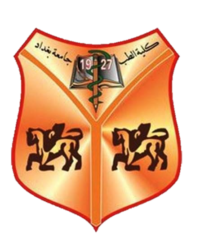Within the framework of the Global innovation Week program and to ensure access to a healthy, sustainable life, the College of Medicine at the University of Baghdad, under the patronage of the Dean of the College, Professor Dr. Ameen Al-Alwani, held a scientific symposium entitled “Anti-Smoking Program in Colleges.” The symposium was organized in Al-Kindi Hall on the morning of Wednesday, the fifteenth of November, as part of the activities of the continuing education unit at the college, and according to a more comprehensive program that the college is working to implement in cooperation with the Ministry of Health. Which aims to present the problem of smoking on university campuses, and to find practical solutions necessary to solve this problem and reduce its devastating health effects. The symposium was presented by Professor Dr. Ghazi Farhan Haji, Director of the Continuing Education Unit at the College, and Dr. Abbas Jabbar, Director of the Tobacco Unit at the Ministry of Health. The symposium included several topics, including an explanation of the harms of smoking and the percentage of smokers in Iraq, especially in educational and health institutions, with an explanation of the international obligations in this field ratified by Iraq, in addition to a quick presentation of the Iraqi anti-smoking law. In conclusion, the symposium reached a number of recommendations after opening the door for interventions with the attendees, including a call to conduct a questionnaire showing the percentage of smokers among the college’s employees and students in cooperation with the Ministry of Health. With a call to direct students in primary and postgraduate studies to include in their research the harms of smoking at the health level and its impact at the economic level through structured or unstructured lectures to raise awareness of this. We are also working on setting up an awareness tent under the administration of the Deanship of the College, in which there is a device to measure the percentage of carbon monoxide in the lungs, to determine the extent of lung damage in smokers. They also measure their blood pressure levels to raise awareness of the relationship between them, in addition to investing in active student groups to organize awareness campaigns in this field, along with organizing drawing exhibitions and anti-smoking brochures.

